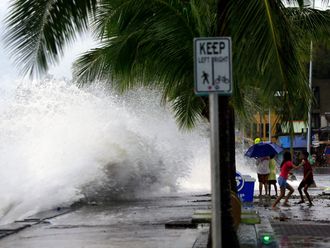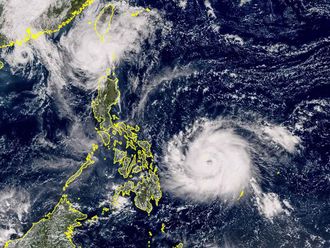Manila: Concerns have been raised over the health risks posed by liquefied petroleum gas taxis on the heels of government findings that exposure to such fuel has adverse effects on drivers and passengers.
In a statement, one of the country’s biggest worker’s confederation, the Associated Labour Unions-Trade Union Congress of the Philippines (ALU-TUCP), said it “expressed grave concern over the Department of Health (DOH) findings” that liquefied petroleum gas (LPG)-powered taxis pose a health hazard to thousands of cab drivers and commuters.
Prolonged exposure to LPG fumes had long been suspected to have adverse effects on humans. “Now that it has been clinically confirmed, we expect the government to be quick and aggressive in its resolve in addressing this pandemic because it involves the everyday lives of 60,000 estimated taxi drivers working in shifts and unknown thousands more of commuters,” ALU Executive Vice-President Gerard Seno said.
The Philippines adopted and promoted the wide use of LPG-powered taxis and passenger utility jeeps less than ten years ago during the administration of President Gloria Arroyo as a measure to improve earnings of public transport drivers as petroleum and diesel prices increase. The adoption however, had not been accompanied by prior long-term studies on ill effects of exposure to LPG on passengers and taxi drivers.
Drivers using LPG interviewed by Gulf News said that they experienced certain differences in their health and well-being after driving LPG taxis for several years.
“Most of the time my throat feels dry even when I’m not thirsty and I don’t have the desire to eat unlike before,” said Florencio Gatbunton, 43, a taxi driver for 25 years. He had been driving an LPG powered-cab for the last seven years.
Amado Mariano, 35, also complains of similar symptoms. He has been driving an LPG taxi for five years.
“Sometimes I would have a headache, something similar when you have a head cold that would not come out. Sometimes I just want to throw up and vomit for no reason,” he said.
To ensure their safety, the ALU urged the government to immediately activate an Inter-Agency Task Force to deal with health problems associated with LPG-powered taxis.
“We want to see, as soon as possible, an inter-agency health task force made up of people from the Department of Environment, Land Transportation and Deportment of Health, on the ground inspecting LPG conversion shops and taxi terminals. We want the inter-agency team to interview affected taxi drivers and draw measures to permanently stop this man-made pandemic,” he added.
Seno said like most taxi drivers around the world, Filipino cabbies depend solely on their daily wages.
“They are categorised as part of the informal workers’ sector who don’t have social protection or health benefits. Thus, the more the government should ensure that this new found health problems caused by exposure to LPG must be dealt with high urgency so that no one will have to endure further,” he said.
A study was conducted by the Department of Health in the National Capital Region and the University of the Philippines-National Poison Management and Control Centre on taxi drivers that use LPG and regular gas/diesel fuel.
Of those exposed to LPG, 26 complained of headaches, back pain, nape pain, chest pain, cough, dizziness, dry throat, fatigue and muscle weakness, nausea and difficulty in breathing.
There are 40,000 registered taxi cabs in the country. Half of these are converted to run on LPG fuel and operate mostly in Metro Manila.












